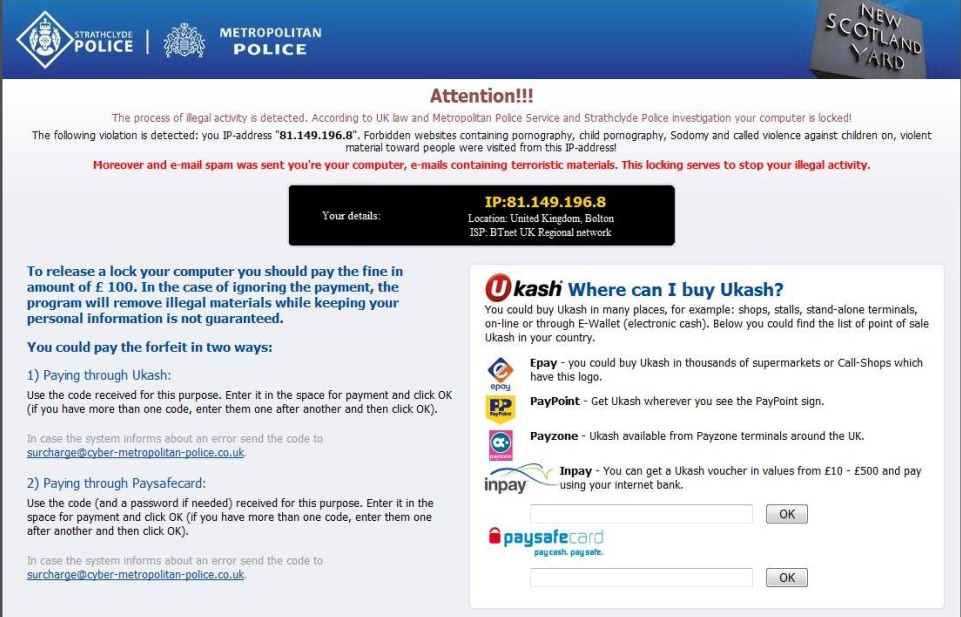Metropolitan Police: Beware of Law Enforcement Viruses
The UK Metropolitan Police’s Central e-crime Unit (PCeU) is warning Internet users about the massive malware campaign that locks computers allegedly in the name of the law enforcement agency.
Microsoft’s Malware Protection Center informed a while back that the campaign is targeting users from all across Europe, locking computers and demanding payment from the victims in return for an unlock code.
Since one of these scareware viruses impersonates the Metropolitan Police, the organization issued an advisory to clarify that they would never contact members of the public in such a manner to demand fine payments.
Victims of these cybercrimes stated that, even if the “fines” were paid, the devices remained locked since the crooks didn’t bother to remove the malware once they found themselves in the possession of the money.
“Officers from the Met’s Police Central e-Crime Unit (PCeU) are working with international law enforcement agencies to investigate this offence. PCeU have liaised with all other UK forces to make them aware of the malware and steps to take,” reads the advisory.
Until the issue is addressed and law enforcement representatives or security solutions providers find a more effective way of dealing with the scams, users are recommended never to make payments and hand out bank account details if they’re presented with such messages.
However, since these are actually pieces of malware, a good, up-to-date antivirus solution may be able to block the threats.
In case you fell for these scams and handed out money or other highly sensitive information, you should report the incident to the local police. On the other hand, if you didn’t hand out any sensitive data, but your computer displayed the malicious message, you can report the virus infection to Action Fraud and your security software vendor.
Since one of these scareware viruses impersonates the Metropolitan Police, the organization issued an advisory to clarify that they would never contact members of the public in such a manner to demand fine payments.
Victims of these cybercrimes stated that, even if the “fines” were paid, the devices remained locked since the crooks didn’t bother to remove the malware once they found themselves in the possession of the money.
“Officers from the Met’s Police Central e-Crime Unit (PCeU) are working with international law enforcement agencies to investigate this offence. PCeU have liaised with all other UK forces to make them aware of the malware and steps to take,” reads the advisory.
Until the issue is addressed and law enforcement representatives or security solutions providers find a more effective way of dealing with the scams, users are recommended never to make payments and hand out bank account details if they’re presented with such messages.
However, since these are actually pieces of malware, a good, up-to-date antivirus solution may be able to block the threats.
In case you fell for these scams and handed out money or other highly sensitive information, you should report the incident to the local police. On the other hand, if you didn’t hand out any sensitive data, but your computer displayed the malicious message, you can report the virus infection to Action Fraud and your security software vendor.
Source:Softpedia

